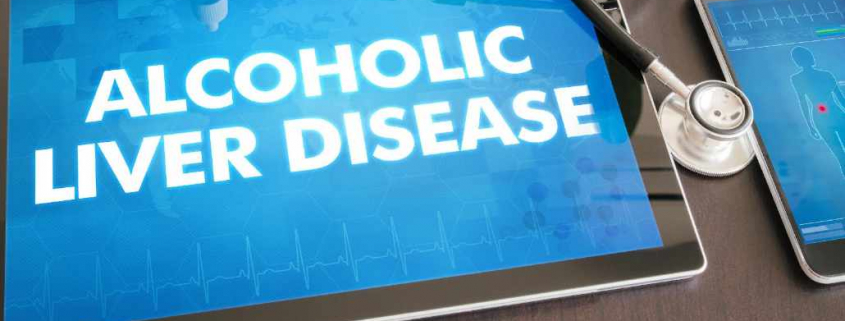How Does Alcohol Affect the Liver
Alcohol is a toxic substance that when abused can cause multiple health conditions. Alcohol use disorder (AUD) is linked with increased heart disease, cancer, and brain damage, but how does alcohol affect the liver?
The liver is an essential organ that acts as the body’s filtering system. Alcohol is metabolized through the liver, so when alcohol is abused over the long term it has damaging effects. Read on to learn how the liver is impacted by alcohol use disorder.
What is Alcohol Use Disorder?
AUD is a pervasive health concern, affecting 14.5 million adults in the U.S., according to statistics provided by the NIAAA. Each year about 88,000 Americans lose their lives to alcohol-related deaths. In fact, a third of fatal car accidents involve alcohol.
Alcohol is a central nervous system depressant that produces a relaxed, calm effect as the body’s systems slow down. People use alcohol as a way to relax in social settings or to unwind after a busy day at work. Alcohol can boost someone’s confidence, which is also why it is used as a social tool. And of course, some abuse alcohol in a recreational manner, behavior that is most common among teens and young adults.
The pleasurable effects of alcohol imprint on the brain’s reward system as a positive experience. This lays the foundation for repetitive drinking behavior, which can result in altered neural pathways and dependency.
The spectrum of AUD includes a range of dysfunctional drinking behaviors. This includes alcohol abuse, such as binge drinking, to alcohol dependency to alcohol addiction. When someone is diagnosed with AUD, they are staged as mild, moderate, or severe based on the number of symptoms present.

What Causes AUD?
Science has not yet discovered why some people become alcoholic while others with the same consumption levels do not. Some of the factors that are linked to AUD include:
- Genes. Those with a family history of AUD are more likely to become alcoholic, too.
- Environment. People from households where alcohol consumption is prevalent have a greater chance of also adopting this behavior.
- Drinking at a young age. Drinking before age 15 can increase the chances fivefold of having a drinking problem later.
- Mental health issues. Individuals suffering from depression, anxiety, or bipolar disorder often use alcohol as a means of self-medicating.
- Life events. Those who have experienced trauma, a history of abuse, or suffered many losses may be more likely to develop AUD.
Signs of Alcoholism
When AUD sets in, certain physical, behavioral, and psychological effects become noticeable. These are some of the common signs of AUD:
- Nausea and vomiting in the morning.
- Blood is present in urine.
- Bloating
- Sweating
- Shaking or tremors.
- Headaches
- Increased heart rate.
- Memory blackouts.
- Increased cravings.
- Neglecting personal hygiene.
- The onset of withdrawal symptoms when the effects of alcohol wear off.
Behavior Signs of AUD:
- Cannot control drinking.
- Neglecting obligations.
- The decline in work or school performance.
- Legal troubles.
- Irritability
- Money problems.
- Dishonest behaviors.
- Drinking alone.
- Attempts to stop or limit drinking fail.
Psychological Signs of AUD:
- Relationship problems.
- Symptoms of depression.
- Symptoms of anxiety.
- Mood swings.
How Does Alcohol Affect the Liver
Fatty Liver. Fatty liver is a condition in which a build up of fat in the liver cells causes an enlarged liver. It often causes no symptoms, but when they do emerge they include weight loss, weakness, and fatigue.
Alcoholic Hepatitis. This is an inflammatory condition of the liver caused by the toxins associated with excessive and chronic drinking. It affects about one-third of those with AUD. Symptoms of alcoholic hepatitis include:
- Fever
- Nausea and vomiting.
- Abdominal swelling and pain.
- Dry mouth.
- Loss of appetite and weight loss.
- Weakness
- Mental confusion.
- Jaundice
- Bruising or bleeding more easily.
- Fatigue
- Mood changes.
- Fluid retention in the upper body.
Cirrhosis. About 10%-20% of chronic heavy drinkers develop cirrhosis of the liver. Cirrhosis occurs when healthy liver tissue is replaced by scarred tissue, preventing the liver from removing toxins from the body. Symptoms of cirrhosis include:
- Fatigue
- Fever
- Nausea
- Swelling in legs, ankles, or feet.
- Mental confusion.
- Slurred speech.
- Itchy skin.
- Muscle cramps.
- Loss of appetite and weight loss.
- Bleeding or bruising easily.
- Ascites, or fluid in the abdomen.
- Disruption in women’s menstrual cycle.
- Loss of sex drive in men.
- Red palms of the hand.
- Yellowed whites of the eyes.
- Yellow skin tone.
- Broken blood vessels in the skin.
- Whitening of the fingernails.
- Brownish urine.
- Bone disease.
- Enlarged spleen.
The only way to treat alcohol-related liver disease is to stop drinking. Over time, and with a healthy diet and other interventions, some of the damage can be reversed. Sometimes, though, a liver transplant is the only option.
Getting Help for Alcoholism
The best chance of breaking free from AUD is by enrolling in a treatment program. The rehab setting shows you how to make lasting changes in behaviors by combining therapy with various other activities:
- Medical detox. A team of medically trained experts closely monitors the detox process. As symptoms progress, they provide meds to reduce discomfort, as well as mental health support.
- Therapy. CBT and DBT are evidence-based therapies that help the person make positive changes in thought and behavior patterns.
- Education. Rehabs offer classes to teach recovery skills and relapse prevention planning.
- Group therapy. Peers in recovery meet in small group sessions where they share their experiences and feelings.
- Holistic methods. Rehabs also include relaxation methods, such as yoga, meditation, and art therapy.
- 12-step program. 12-step recovery meetings are a central source of social support.
- Fitness and nutrition. A focus on restoring health and wellness includes dietary coaching and exercise.
Knowing how alcohol affects the liver can be a powerful motivator to get help for AUD before health issues become serious. Reach out for help today.
Journey Hillside is a Leading Treatment Provider for Alcohol Use Disorder
Journey Hillside is a residential treatment program for people who struggle with AUD and dual diagnosis. To learn more about the program, call us today at (877) 414-1024.





